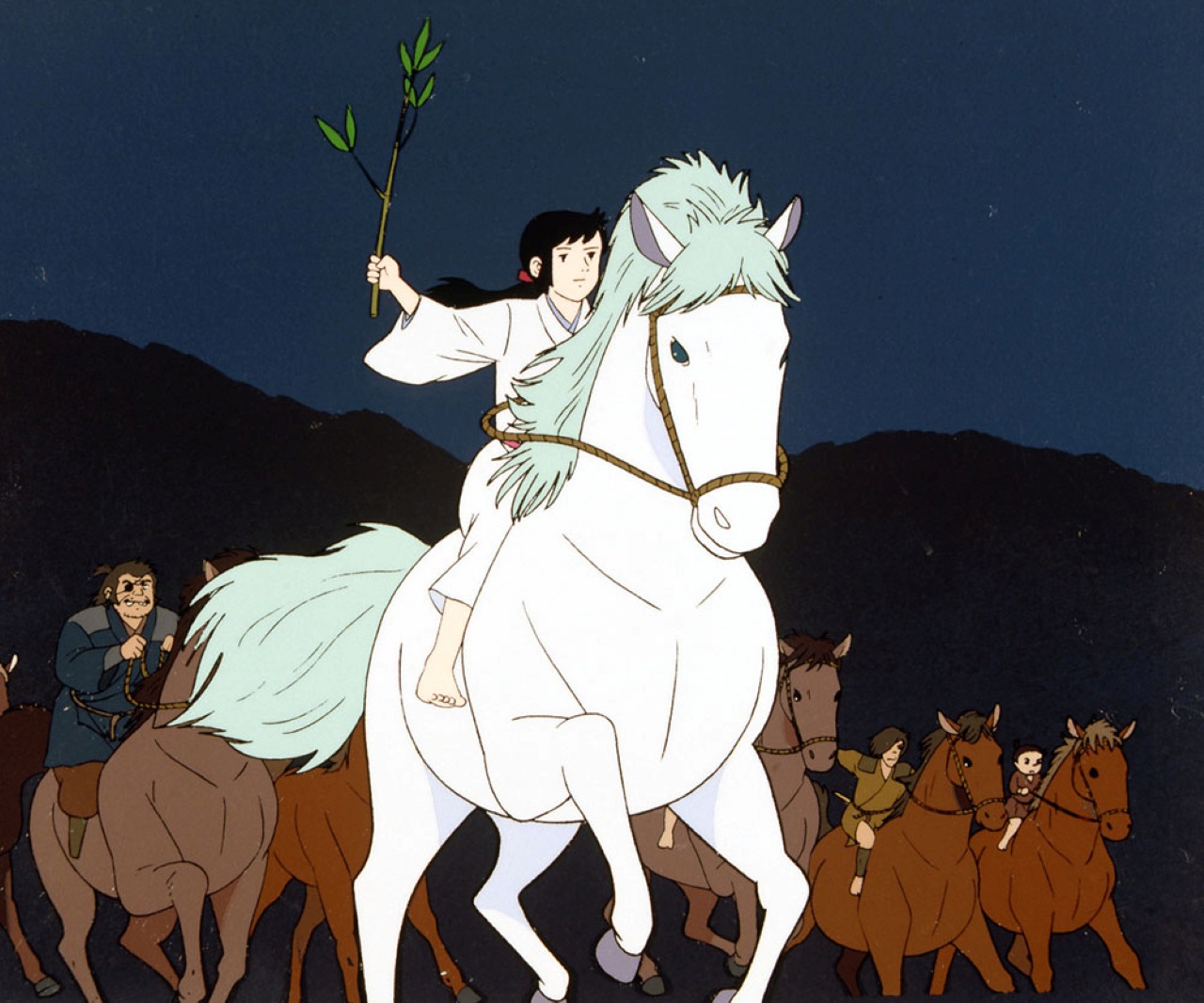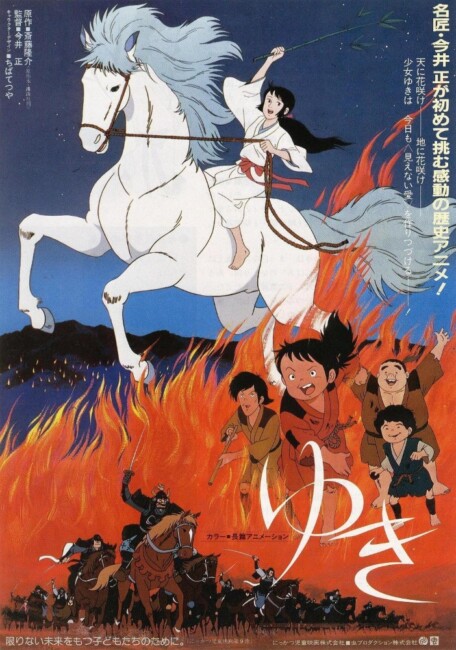Crew
Director – Tadashi Imai, Screenplay – Akira Mayazaki, Based on the Novel by Ryunusuke Saito, Music – Chito Kawauchi, Animation Director – Shinji Tsuji. Production Company – Nikkatsu/Mushi Productions.
Plot
Up in Heaven, Yuki’s grandparents decide that, having turned thirteen years old, she must go down to Earth to a village that is torn by bandits and intervene to save its people. However, if she does not succeed within one year, she will become as insubstantial as the wind. Down in the village, Yuki is befriended by a group of orphans whose parents have been killed by the bandits and who now subsist by begging. Yuki amazes them by taming the wild horse Blizzard. She is instrumental in getting the orphans and farmers to stand up to first the warring bandits and then Goemon, the greedy lord that owns the region. Yuki must then face her greatest challenge when the displeased Demon God that lives in the volcano emerges to destroy those who live beneath.
Watching Yuki – Snow Fairy today, it comes without much of the polish that these later cult directors brought to the genre. The animation is limited and the film rarely takes in the epic vistas and scales of mass destruction that have become almost routine in modern anime.

That said, Yuki – Snow Fairy a modestly effective film is in its own way. Although, outside of its opening up in Heaven and the impressive last quarter-hour where the heroine takes on a mountain god that looks like the Talos out of Jason and the Argonauts (1963), there is surprisingly little that is fantasy. Rather it could almost be an historical epic along the lines of one of Akira Kurosawa’s samurai films – a surprising amount is placed into depicting the realism and detail of the historical era.
The film is based on a novel and this gives it an ambitious scope. The scale of the story carries the film – it is an epic fantasy in this regard. It is both an adult yet an effectively simple story told in clearcut black-and-whites – an innocent heroine whose virtue wins out, the honest simplicity of the peasantry pitted against the greedy landowners and samurai. (For all it is pitched as a fantasy, it could be a work of Japanese Marxism). Eventually, after a time, the characters, the simple lines of the drawn countryside in the background and the occasional touches of lavish scale develops a beauty and a contemplative simplicity unlike anything you find in a Western animated film.


